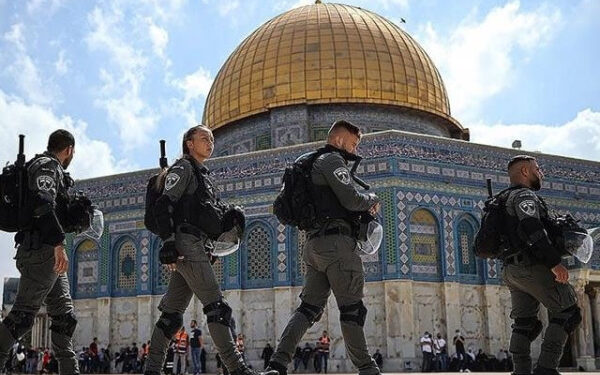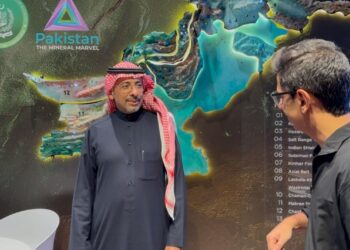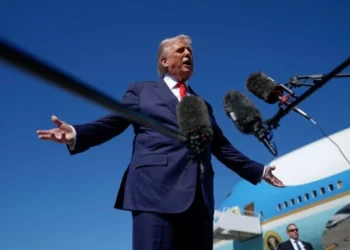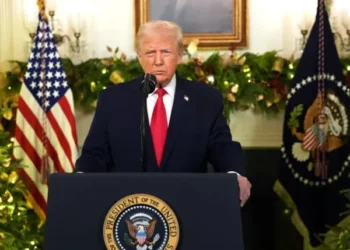The Palestinian Authority (PA) has sounded alarm bells over Israel’s alleged excavations beneath the Al-Aqsa Mosque compound in Jerusalem, one of the most sensitive and contested religious sites in the world. According to Palestinian officials, these excavations are not merely archaeological activities but a deliberate attempt to undermine Islamic antiquities, erase centuries of Muslim heritage, and lay the groundwork for transforming the holy site into a Jewish place of worship.
The accusation has reignited global debate over the status of Jerusalem, escalating tensions between Palestinians and Israelis, and drawing the attention of the broader Muslim world.
The Importance of Al-Aqsa Mosque
A Sacred Symbol in Islam
The Al-Aqsa Mosque, located in the Old City of Jerusalem, is considered the third holiest site in Islam after Mecca and Medina. Muslims around the world revere it as the place where Prophet Muhammad (PBUH) ascended to the heavens during the Isra and Mi’raj.
A Center of Political Struggle
Beyond its spiritual significance, Al-Aqsa has also become a powerful symbol of the Palestinian cause. For Palestinians, the mosque represents not only their religious devotion but also their political and national identity in the face of Israeli occupation. Any perceived threat to its sanctity often sparks large-scale protests, clashes, and international condemnation.
Allegations of Excavations and Damage to Antiquities
The Palestinian Authority recently issued a statement accusing Israel of conducting illegal excavations beneath the Al-Aqsa compound. According to Palestinian officials:
- These excavations have caused serious damage to Islamic antiquities, many of which date back centuries.
- The destruction is viewed as an attempt to eliminate historical evidence of Muslim presence in Jerusalem.
- Videos circulating on social media appear to show workers breaking large stones within the compound after digging, further fueling suspicions of deliberate tampering.
The PA described these actions as a direct violation of international law, especially the agreements that protect religious and cultural heritage sites in occupied territories.
The Palestinian Authority’s Accusations
The statement from the PA was unambiguous:
- Israel is deliberately destroying Islamic heritage at Al-Aqsa.
- The long-term aim, according to Palestinian officials, is to replace the mosque with a Jewish place of worship, possibly linked to aspirations of rebuilding the Third Temple, a belief held by some Jewish religious groups.
- By erasing evidence of Muslim ties to the site, Israel could strengthen its claim over Jerusalem and alter the delicate religious status quo that has existed for decades.
Historical Context: The Battle Over Al-Aqsa
The “Status Quo” Agreement
Since the Ottoman era, a fragile arrangement has governed control of Jerusalem’s holy sites. Following Israel’s occupation of East Jerusalem in 1967, the status quo agreement was reaffirmed, which allows Muslims to worship at Al-Aqsa under the custodianship of the Jordanian Waqf (Islamic trust), while Jews may visit but not pray there.
Previous Incidents of Excavations
- Over the years, Israel has carried out various archaeological digs around and beneath the Al-Aqsa compound, claiming they are necessary for historical research.
- Palestinians, however, see these excavations as a cover for altering the site’s foundations and gradually preparing the ground for Jewish religious structures.
- International organizations, including UNESCO, have previously criticized Israel for activities that risk damaging Islamic and Christian heritage in Jerusalem.
International Law and Human Rights Concerns
The PA argues that Israel’s actions constitute a violation of multiple international treaties and conventions:
- The Hague Convention of 1954 for the Protection of Cultural Property in the Event of Armed Conflict.
- UNESCO World Heritage regulations, as the Old City of Jerusalem is recognized as a World Heritage Site in danger.
- International humanitarian law, which prohibits occupying powers from altering or destroying cultural and religious heritage of occupied territories.
By digging under Al-Aqsa, critics argue, Israel is not only breaching international law but also provoking religious sensitivities that could trigger widespread unrest.
Symbolic and Political Implications
Erasure of Islamic Identity
The destruction of Islamic antiquities, according to Palestinian leaders, is a form of cultural erasure aimed at diminishing Muslim claims to Jerusalem.
Establishing Jewish Religious Dominance
The fear among Palestinians is that these excavations are part of a larger plan to eventually replace Al-Aqsa with a Jewish temple, fundamentally altering the religious balance in the Old City. This would not only impact Palestinians but also provoke anger across the entire Muslim world.
Escalation of Conflict
Al-Aqsa has been at the heart of some of the most violent clashes between Palestinians and Israeli forces. In 2000, a controversial visit by then-Israeli leader Ariel Sharon to the mosque compound sparked the Second Intifada, a five-year uprising that claimed thousands of lives.
The Role of Social Media and Public Outcry
The spread of video evidence showing alleged destruction at the mosque has ignited outrage online. Hashtags related to Al-Aqsa have trended across Twitter, Facebook, and Instagram, with activists warning that Israel is attempting to change the religious and cultural character of Jerusalem under the cover of archaeology.
Palestinian activists argue that social media has become a critical tool in documenting violations and mobilizing international opinion.
Global Reaction and Calls for Action
Muslim Countries
Several Muslim-majority nations have historically condemned Israeli activities at Al-Aqsa. Countries like Turkey, Jordan, Saudi Arabia, and Iran closely monitor the situation and often issue statements of protest whenever new tensions arise.
Jordan’s Custodianship
Jordan, which holds official custodianship over the Al-Aqsa compound through the Jordanian Waqf, has previously accused Israel of violating agreements and attempting to interfere with Muslim worship. The current allegations are expected to further strain relations.
International Organizations
UNESCO and the United Nations Security Council have often debated Israel’s activities in Jerusalem. While resolutions have been passed condemning violations, critics say international pressure has not been enough to halt Israeli excavation work.
What Israel Says
Israel typically defends its excavation projects by stating that they are conducted for archaeological and historical research, meant to uncover Jewish history in Jerusalem. Israeli authorities often deny that the activities are intended to harm Islamic heritage or alter the religious status quo.
However, many Palestinians and international observers remain skeptical, pointing to the pattern of damage that consistently impacts Islamic sites more than others.
Potential Consequences if Fears Are True
If the Palestinian Authority’s claims prove accurate, the implications could be catastrophic:
- Religious Unrest: Any attempt to change Al-Aqsa’s religious status could spark massive protests and possibly trigger a new wave of violence across the Middle East.
- Collapse of Status Quo: Altering the delicate balance of religious rights in Jerusalem could destabilize regional peace efforts.
- Diplomatic Fallout: Israel’s relations with Muslim countries, especially those it has normalized ties with under the Abraham Accords, could deteriorate.
- Global Muslim Response: The issue of Al-Aqsa resonates deeply with Muslims worldwide, and large-scale demonstrations could erupt from Jakarta to Casablanca.
Conclusion: A Tipping Point in Jerusalem’s Conflict
The Palestinian Authority’s warning that Israel is preparing to turn Al-Aqsa Mosque into a Jewish place of worship underscores the deep-rooted tensions over Jerusalem’s holy sites. Whether these excavations are archaeological or politically motivated, the perception among Palestinians is clear: their religious and cultural identity is under threat.
With videos surfacing of damage within the mosque compound, calls are growing for the international community to intervene and ensure the protection of one of the most sacred sites in Islam. If left unaddressed, the issue has the potential to spark wider regional conflict, making the future of peace in Jerusalem more uncertain than ever.

























